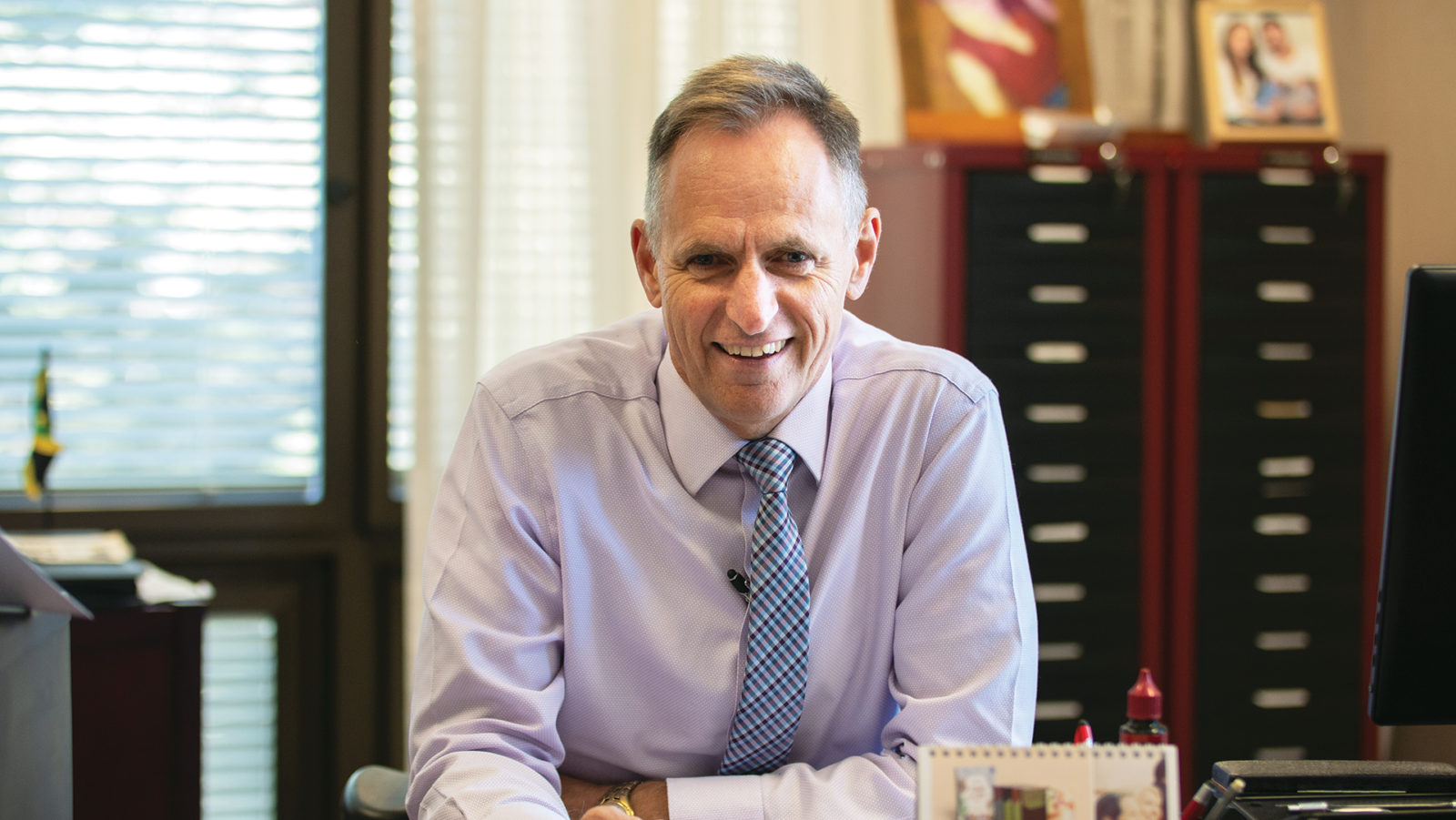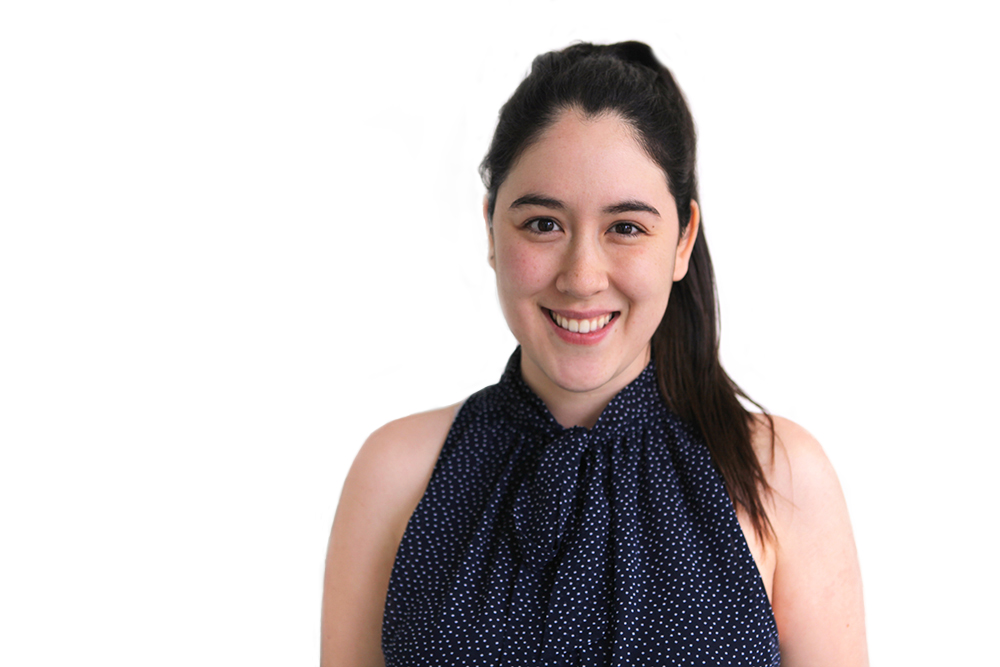Name: Glenn Townend
Job: President, Seventh-day Adventist Church in the South Pacific (SPD)
Where: Wahroonga, New South Wales
What does a typical work day look like for you?
I have three “typical” days. If I’m in the office, then the day will always start with staff worship. I’ll typically have three or four appointments with various people, ranging from a photoshoot to working on a serious issue that’s arisen or a report from a department. I’ll also answer emails and phone calls, and there will often be a meeting or two which can last anywhere from an hour up to three hours.
When I’m involved with the five institutions operated by the SPD, and the SPD Executive and SPD Boards, my days will often be completely focused on their boards and sub-committees or being involved in strategic planning. I chair many of these meetings which will take the majority of the day—some of them even two days—and often these meetings can have up to 400 pages to read in preparation. With the unions, there is just as much to read and as many meetings but I don’t have to chair, just support and advise.
The last “typical” day, which happens most weeks, is a travel day. I’m away for just under half of the year, so I spend a lot of time in cars, trains and planes. Often times, my day will be a combination of these three typical days—as an example, a few times a year I leave home at four in the morning to take a train to the airport, where I fly to Port Moresby (Papua New Guinea). I get to Pacific Adventist University around two in the afternoon, and go straight into meetings that run until around six in the evening.
Whatever the day, I always start with prayer and Bible reading—I have read the Bible through once each year for the past 19 years—and try to walk at least three kilometres. When I’m at home I like to walk with my wife.
What led you to this role?
After graduating from college, I spent two years of my pastoral internship on the Gold Coast (Qld) and married Pamela during this time. We then served the district based in the outback town of Roma for three years, and our two daughters were born.
In the five years I spent in Tasmania, I pastored two churches and served as a departmental director for the Conference. Our son was born there. Then in Geelong (Vic) I served as pastor for a few churches, and was chaplain for the small primary school, for five years.
We then moved to Gilson College, where we started the church on campus, and I also became ministerial secretary for the Victorian Conference. After that, I spent 10 years as president for the Western Australian Conference, just over two years as president of the Trans Pacific Union Mission, and then in 2015 was called to the role of SPD president at the General Conference session in San Antonio, Texas.
In your nearly five years as Division president, what’s one of the biggest lessons you’ve learnt?
Leadership is certainly not a popularity contest. It’s about making the right decisions, regardless of whether people agree or not. People sometimes don’t have the full story, and so they may not understand the decision that’s being made. But I’ve learned that leadership is about staying true to your values and after gathering all the facts and information you can, making a prayerful decision.
What’s one of the biggest challenges you’ve faced in the role?
God’s people are saints, but sometimes they have very unsaintly ways! There have been times when I’ve just had to let go and trust God with the situation and my feelings. The psalms of David are a comfort at those times. If I took to heart all of the criticism people have levelled on a few different occasions, I think I’d need more than therapy!
So what is the best way to deal with the criticism you often face?
I value good, honest critique, and am very much open to it. Feedback is the breakfast of champions! Otherwise, you live in your own little echo chamber, and you don’t grow. I value God’s people and their assessment of things, but if I sense that their words are delivered with a spirit that is meaning to harm and destroy, it is not productive. Some of the things that have come my way have been downright slander and character assassination—that doesn’t build anybody up, so I don’t take any notice of that. [pullquote]
On the other hand, if I sense that the criticism is about pointing out some challenges and how I can learn or grow, and it comes from a place of encouragement and support, I find that extremely valuable. Oftentimes, I will filter negative feedback past people around me who I trust and know I can speak openly with—work colleagues, family members, friends—and ask them for their honest opinion. If they agree with the criticism, then I will take notice. But whether affirming or challenging, I always try and respond to every letter or email that’s sent to me.
What would you say is the best part about your job?
I really like seeing God’s people making disciples. As I travel around the Pacific, I get to see and hear from people who are creating those stories. God is active and He is using His people. I also love the rigour of making our vision of “becoming the last day movement before Jesus comes” become a reality.
What is something that would surprise people about your job?
Church leaders are not CEOs. We have no executive authority—it’s the executive committee that has the authority. As chairs of those meetings I put forward my opinion, but ultimately, it is the representatives of the people who get to decide by their votes and we leaders have to follow through on those decisions.
The SPD has a focus on discipleship. What are some ways you share Jesus—and make disciples—in your everyday life?
Good question. In the past as a pastor and administrator I have seen neighbours and people I play sport with become followers of Jesus within the Seventh-day Adventist Church.
Now, I pray for my neighbours, and when I’m home, I have intentional conversations with them. I also letterbox a radius of around three kilometres around our house on a regular basis.
When I travel, I take GLOW tracts and books with me. I’ll give them out to people or leave them in the airline magazine compartment. I also love to cycle, as it keeps me fit and clears my mind. Some of the people I cycle with are Adventists, but some are not, so I get to talk and listen to them. Because I’m not home very often or in one local church each week, I find my methods, although practical, are very haphazard! But discipleship is about becoming more like Jesus and doing what you can and praying that God can use it.






